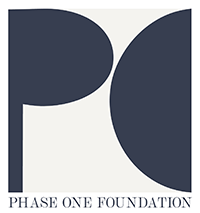Our Featured Research Page lists cancer prevention, treatment and quality of life studies enrolling people with or at high risk for hereditary cancers. You can do a quick search to filter our featured studies by cancer type, study type or key word, or a more in-depth search through clinicaltrials.gov.
Search Results: Prevention, Detection & Risk + Prostate Cancer (8 results)

Prevention
Prostate screening with MRI for men with Lynch syndrome (MLH1, MSH2, MSH6, PMS2, EPCAM) or a BRCA1, BRCA2, HOXB13, ATM, NBN, TP53, BRIP1, CHEK2, PALB2, RAD51C, RAD51D, or other mutation
Men at High Genetic Risk for Prostate Cancer
The National Institutes of Health has a clinical trial for men at high genetic risk for prostate cancer. This is trial is for men without prostate cancer, ages 30 to 75, who have tested positive for Lynch syndrome (MLH1, MSH2, MSH6, PMS2, EPCAM) or BRCA1, BRCA2, HOXB13, ATM, NBN, TP53, BRIP1, CHEK2, PALB2, RAD51C, RAD51D, or FANC (FANCA, FANCB, FANCC, FANCD2, FANCE, FANCF, FANCG, FANCI, FANCL, and FANCM). The trial involves screening MRI of the prostate every two years and biopsy of the prostate if the MRI is abnormal. There is no cost for travel or study-related tests.

Prevention
Screening study for people with a mutation linked to prostate cancer risk
PATROL Study: Prostate Cancer Screening for People AT Genetic Risk FOr Aggressive Disease
The PATROL (Prostate Cancer Screening for People AT Genetic Risk FOr Aggressive Disease) study is for people at risk for prostate cancer because they carry one or more genes that are known or suspected to increase prostate cancer risk: BRCA2, HOXB13, ATM, BRCA1, MLH1, MSH2, MSH6, PALB2, PMS2, CHEK2, RAD51D, or TP53.

Prevention
Screening using MRI for men at risk of developing prostate cancer
MRI Screening in Men at High Risk of Developing Prostate Cancer
This study will determine if prostate magnetic resonance imaging (MRI) will find prostate cancer in men at high risk of developing prostate cancer.

Prevention
People with a BRCA1 or BRCA2 mutation
Testing a Vaccine for Cancer Prevention in People with a BRCA1 or BRCA2 Mutation
This study will look at a new vaccine known as INO-5401 used alone or combined with a second vaccine called INO-9012. The study will test if the vaccine is safe (without large side effects) and test a new way of giving vaccines. It will also test whether the vaccine activates the immune system. A goal of this research is to reduce cancer risk in people with a BRCA1 or BRCA2 mutation. Additional studies will be needed to learn if this vaccine approach lowers cancer risk in mutation carriers.

Prevention
People at high risk for prostate cancer due to an inherited mutation
Prostate Cancer Genetic Risk Evaluation and Screening Study (PROGRESS)
This study will look at how enhanced prostate cancer screening using MRI will improve early detection rates and further understanding of how inherited mutations can lead to development of prostate cancer.

Prevention
Screening for prostate cancer using upright MRI
Upright MRI for Prostate Cancer Screening
This study will compare the effectiveness of an upright magnetic resonance imaging (MRI) compared to prostate specific antigen (PSA) and current MRI imaging for prostate cancer screening.

Prevention
People with a genetic mutation in BRCA1, BRCA2 or Lynch syndrome who have relatives who have not been tested
IGNITE-TX - Identifying Individuals for Genetic Testing for Familial Cancer
The IGNITE-TX study is all about helping people with a genetic mutation in BRCA1, BRCA2 or Lynch syndrome talk to their family members about their risk for cancer and find the best way to get family members tested.

Prevention
Genomic Services Research Program Study for People with Unexpected Genetic Results
A new study is recruiting people who received unexpected genetic test results about their cancer risk after having genetic testing done for some other reason.
This is a study of people with "secondary results” from genetic testing. Secondary results are unexpected. They are not related to the reason the person had the genetic test but are shared because they may be very important to the person’s health. Most secondary results have to do with high risks for health problems that can be treated or prevented. Many of these results are related to cancer risk. If you think you have received a secondary result, you may be eligible to join this study.

